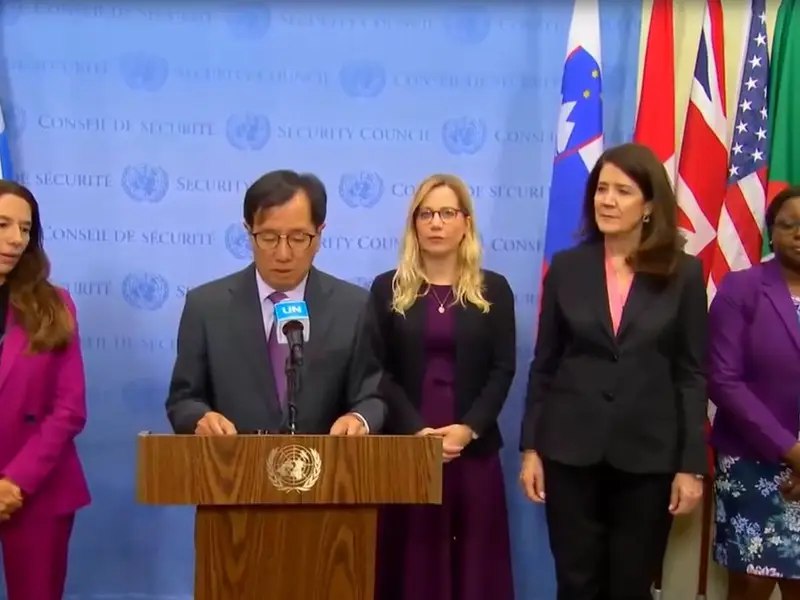RASC News Agency: Several member states of the United Nations Security Council have issued a joint statement expressing deep concern over the implementation of the Taliban’s new law on “Amr bil Ma’ruf” (Propagation of Virtue and prevention of vice). These countries emphasized the necessity of respecting human rights and fundamental freedoms, calling for the immediate repeal of the law.
On Friday, September 6, the ambassadors of Ecuador, France, Guyana, Malta, Mozambique, South Korea, Sierra Leone, Slovenia, Switzerland, the United Kingdom, the United States, and Japan released this statement. They urged the international community and organizations to take action to change the Taliban’s policies in Afghanistan. The statement read: “We condemn, in the strongest possible terms, the Taliban’s continued systemic gender-based discrimination and oppression against women and girls in Afghanistan.”
The statement emphasized that the Taliban’s new “Amr bil Ma’ruf” law imposes even more severe restrictions on women and grants broad powers to the enforcers of this decree. The countries noted that the law negatively impacts the lives of Afghanistani citizens and has caused widespread concern. It further stated: “The Taliban must listen to the voices of Afghanistani women and girls and respect their rights to education, work, freedom of expression, and participation in public life. This is a prerequisite for a stable, peaceful, and prosperous Afghanistan.” The Security Council members also called on world nations to leverage their influence to ensure the law is repealed.
The enactment of the Taliban’s so-called “Amr bil Ma’ruf” law has sparked widespread criticism both inside and outside Afghanistan. However, this marks the first time that some members of the Security Council have condemned the decree. The Council has been unable to formally condemn the law due to opposition from China and Russia. These countries have sided with the Taliban and their anti-humanitarian agenda, supporting the medieval law by labeling it an internal Afghanistan matter.






